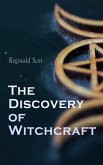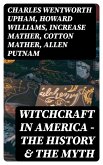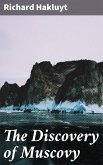In "The Discovery of Witchcraft," Reginald Scot presents a pivotal critique of the witch hunts that swept through Europe during the late 16th century. Scot's innovative use of a didactic and conversational style serves to debunk superstitions and challenge the dogmas of his time, positioning the work within the early modern discourse on rationality versus superstition. Through a blend of empirical reasoning and eloquent prose, he exposes the fallacies of witchcraft accusations, arguing against the moral and logical underpinnings of such beliefs, and advocating for a more humane treatment of those accused. The book operates not only as a defense of rational thought but also as a plea for the empirical investigation of nature and human psychology, reflecting the rising influence of Enlightenment principles. As a 17th-century scholar and skeptic, Reginald Scot was profoundly influenced by the tumultuous sociopolitical realities of his time, particularly the mass hysteria surrounding witchcraft and the often brutal consequences that ensued. Scot's diverse background, including his interests in science, literature, and philosophy, provided him with a unique vantage point from which to critique the prevailing notions of witchcraft. His commitment to rational inquiry and skepticism would later influence Enlightenment thinkers, marking him as a precursor to modern scientific thought. This essential read is recommended for anyone interested in the intersection of history, psychology, and the evolution of rational thought. Scot's incisive critique not only serves as a historical document but also provokes critical reflections on modern-day superstitions and the nature of belief. "The Discovery of Witchcraft" remains a timeless exploration of the human condition, making it an invaluable addition to any scholarly library.
Dieser Download kann aus rechtlichen Gründen nur mit Rechnungsadresse in A, B, BG, CY, CZ, D, DK, EW, E, FIN, F, GR, H, IRL, I, LT, L, LR, M, NL, PL, P, R, S, SLO, SK ausgeliefert werden.









